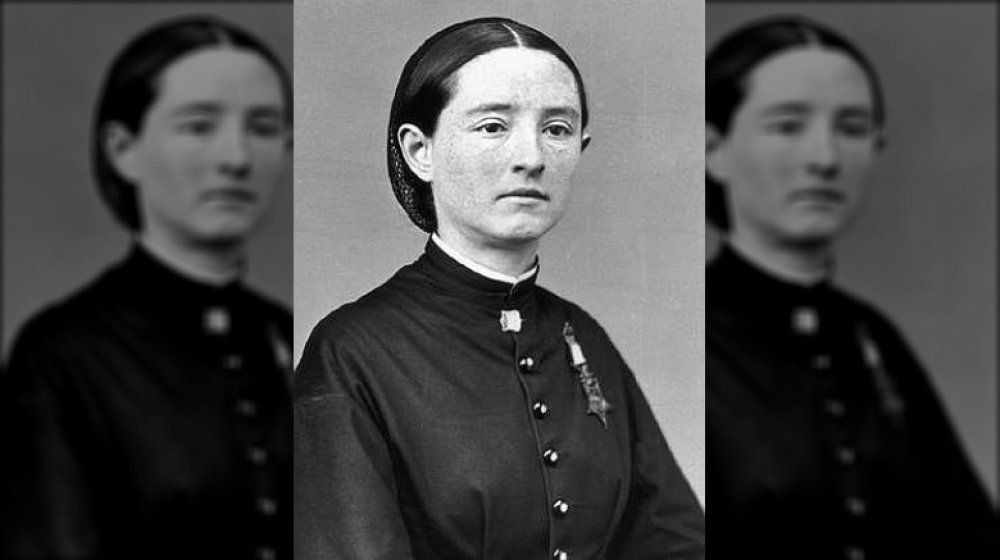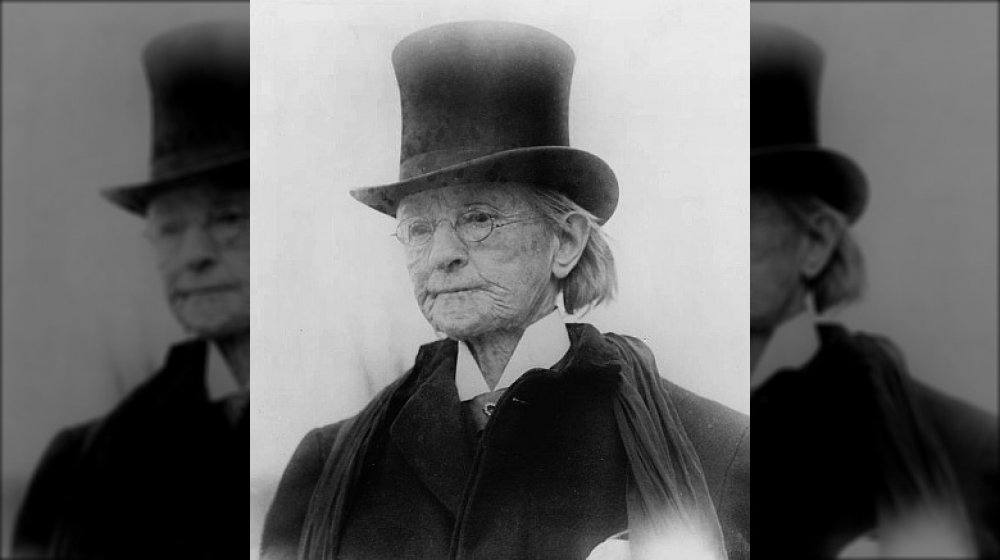The Truth About The Only Woman To Receive The Medal Of Honor
Born in 1832, Mary Edwards Walker was not only a physician, but a surgeon, at a time when women, frankly, weren't respected enough to even be admitted to medical school, let alone practice. That wasn't enough. In time, Walker was also a feminist, a prohibitionist, and an abolitionist — clearly, no one who stepped back from a righteous fight. She was a schoolteacher for a time, and shocked colleagues and parents by wearing trousers, though often under a knee-length skirt. Pants, she knew, were just more practical.
She maintained a private medical practice for many years, and when the Civil War broke out she volunteered her services to the Union Army. They turned her down, but offered to let her function as a nurse. She declined and volunteered as a spy, but was rejected again, serving as an unpaid civilian surgeon until she was finally hired as a civilian surgeon in 1863. Nothing could stop Dr. Walker from treating patients — neither military lines or the distinction between civilian and soldier. Eventually, she was captured by Confederate troops and accused of being a spy after she helped a Confederate surgeon with an amputation. She would be held for five months before being released in a prisoner exchange.
Dr. Mary Walker, in her own clothes
After the war she was superintendent of a women's prison and ran an orphanage. She also hit the lecture circuit, speaking about temperance and women's rights, including women's right to wear whatever clothing they wanted. "I don't wear men's clothes," she said of her trousers. "I wear my own clothes." Post-war she had sought some sort of military commission to validate her service. The powers that were decided there was no precedent for awarding a commission to a female, so the Medal of Honor, the United States' highest personal military decoration, was issued instead. The original commendation remarked on her devotion to "sick and wounded soldiers" with "patriotic zeal ... to the detriment of her own health." Because she was a civilian, the honor was rescinded in 1917, but she continued to wear it until her death two years later. Her medal was restored in 1977, citing her "distinguished gallantry, self-sacrifice, patriotism, dedication and unflinching loyalty to her country, despite the apparent discrimination because of her sex." She remains — so far — the only woman awarded the Medal of Honor.

